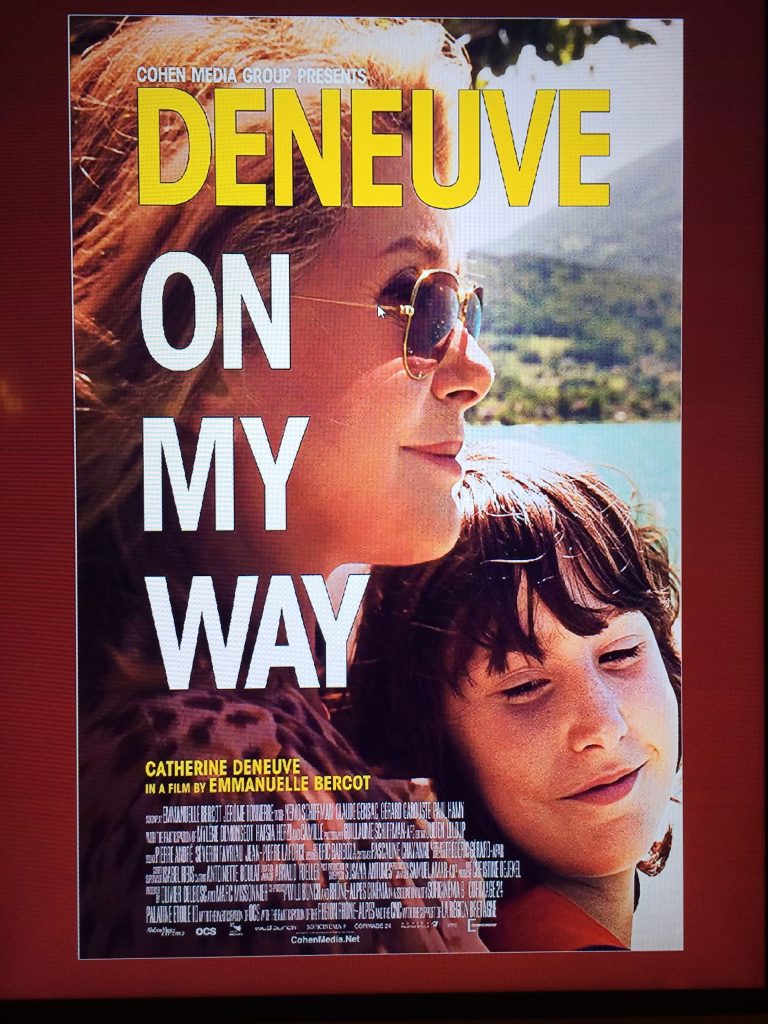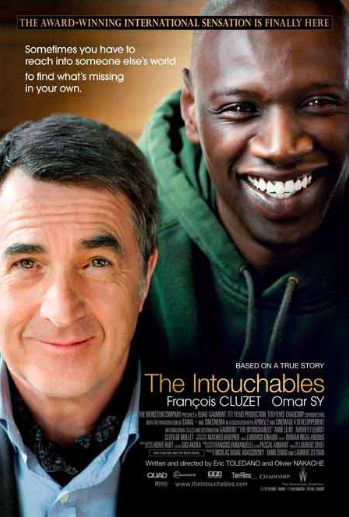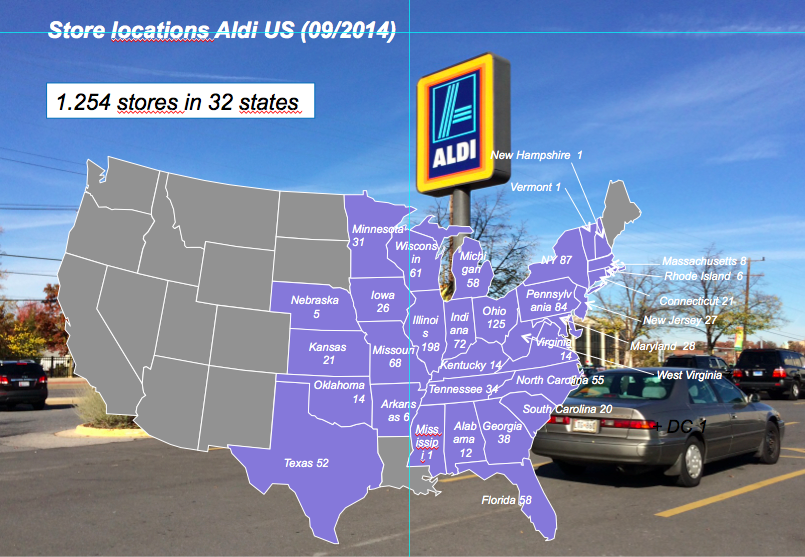
Differences between films in France, Germany, and the US are mostly caused by cultural preferences. However, they all have the same goal—entertaining their audiences!
According to the blog’s editorial calendar, today I’m writing about movies released in 2016 in France, Germany, and the US. However, I already addressed this topic in 2015 and, honestly, not much has changed since my post, ‘8 Differences between the American, German and French Cinema“:
The French film industry is doing well (tickets sales increased by 3.6% in 2016). French people still go to the movies twice as much as Germans do, and ticket prices are still higher on average in Germany. Meanwhile, the US is a paradise for cinema lovers in terms of available screenings.

Differences Between Cinema in France, Germany, and the US
So what?
I started thinking about emotional factors that could explain these cross-cultural differences. After remembering my past theater experiences in these countries, I realized that many movie showings are the same in Germany and the US. That is, you could go on the same day, at the same time to a German or American movie theater and choose between the same film showings.
How does American cinema compare to France’s or Germany’s?
Well, I’m not an expert, but let me share some personal remarks.
Perhaps most obviously, I can watch American movies anywhere in Europe. However, it’s almost impossible to get a French or German movie here in the US!
For my taste, American movies are quite predictable. Don’t get me wrong; I love American films! But, let’s be honest, they always end happily, patriotically, or happily and patriotically. In general, French or European movies have more realistic endings.
Of course, there are exceptions. For instance, I hated Open Water where an American couple goes scuba diving and is accidentally left behind in a shark-infested area. I was so sure of the happy ending. After hours of struggling together and fighting sharks with their bare hands, surely they have to be rescued, I thought. Instead, I had to watch them die before help arrived.
American movies are big-budget productions—or at least, the ones we remember are. Are they more commercial? Yes, and that’s okay with me. Without large budgets and multiple stakeholders, most studios wouldn’t be able to produce any movies to entertain millions of people like you and me.
Science fiction and special effects
Besides The 5th Element, I can’t remember any French science fiction movie. However, director Luc Besson works like an American, and the casting was almost all American.
Special effects abound in American movies—and not only in Star Wars! I’d say that Americans tend to like actions films, while the French prefer less action, more drama, and more dialogue. French films are often a reflection of life, sometimes disguised in a comedy.
Remakes are a one-way effort
I’ve been told that Americans don’t like subtitles. (Neither do the majority of French people, by the way!) When a French movie is successful, Americans would rather do a remake than show the original with subtitles. In 2018, Untouchable will come out on the American screen as the remake of French blockbuster The Intouchables. According to the Internet Movie Database, it will feature Kevin Hart in “A comedic look at the relationship between a wealthy paraplegic and an unemployed man with a criminal record who’s hired to help him,” which is true to the original French story.

The Birdcage, Three Men and a Baby, and The Talented Mr. Ripley are just a few other US remakes of French films. A complete list can be found on Wikipedia.
Good French movie productions
Despite what you might expect, it’s much easier to find an American movie to watch in the US than a German movie in Germany. In 2016, barely 1 in 4 movies shown in Germany were actually German productions, carrying on a long-term trend.
In contrast, the French movie industry is faring well. Even if 2016 was not a prolific year—only one French production ranked in the top 10— French studios created at least a third of all movies in France, peaking with 44.5% of all films in 2014.

Fewer German younger people
Another explanation for the poor performance of cinema in Germany lies in the country’s demographic structure. The country’s birth rate is one of the lowest in the world, and the median age* in Germany is 46.8 years (compared to 37.9 in the US). This is evident in the German cinema: 16% of the German population is ages 10 to 24, but they make up 29% of all ticket sales.
Many movies productions target younger adults but aren’t what “older” people like. In France, the successful movies of 2016 were often comedies that pleased both young and old. Internationally successful, they also show that good movies can reach many generations.
Strong cinema traditions in France
The French are very proud of the brothers Lumière who, inspired by the projector invented by Thomas Edison, figured out how to combine film recording and projection into a single device. Called the seventh art in France, cinema was always popular, but with the rise of television, fewer people went to the movies. The same thing happened in Germany, but France was able to rebound and reverse their nation’s declining trend through several strategies.
First of all, film showings on TV have been restricted to few days each week (e.g. not on Fridays and Saturdays, which are still the most popular days to head to the movie theater). Also French broadcasters have to devote a minimum number of screens to French movies. As a result, this setup favors smaller productions that, in other countries, would never come to life.
Today, French cinema is the exception in Europe. France has more screens, produces more movies, and sells more tickets than any other European country. In 2016, ticket sales grew by 3.6% in France but went down by 2.9% in the US and by 13% in Germany.
Some final words
I love going to the movies! Often, I don’t even care which film I’m seeing. Sometimes, I’ll just go to the theater and watch the first available one. With that said, I don’t really care about differences between American, German, and French cinema. Movies should entertain me and, for a little while, let me forget the world around me. They can make me laugh or cry, but they always have to make me feel happy when I leave. Do you feel the same way?
*The median age is the age that divides a population into two numerically equal groups; half the people are younger than this age and half are older.
Photo credit: Kues1





Fortunately we have here the Avalon theater with a lot of French and foreign movies.
Thank you for the tip. I really appreciate it 😉
The French cinema is heavily sponsorized by the French state, which I think is unfair. And I have doubts as to the cultural benefits of a state-sponsorized culture anyway…
Indeed it is, and it’s the reason we can watch a French movie in a French theater and not an American sequel from Star Wars, Terminator, Planet of the Apes etc. Remember “The Artist”? A French movie, directed by a French director, played with French actors. Also the first French movie to win the Academy Awards for best picture!
Catherine, I also prefer to leave a movie theatre with a smile on my face but some of the best films I have ever seen instead make me silent and emotionally moved. Examples are the very recent American movies “Moonlight” and “Manchester by the Sea”. Back in 1998 I saw “Life is Beautiful” , directed by Roberto Benigni (an Italian movie) and watched it two additional times. I was shocked to read how many top critics panned it. Richard Schickel of TIME Magazine (Rotten Tomatoes website, December 30, 1999) wrote: “Sentimentality is a kind of fascism too, robbing us of judgment and moral acuity, and it needs to be resisted. Life Is Beautiful is a good place to start.”
Maybe your other readers/subscribers would rather see guaranteed smile makers like the 2001 French movie, “Amélie”, a romantic comedy film directed by Jean-Pierre Jeunet. I saw that twice and don’t recall any critics hating it. But my opinion is not representative of most of my friends: when I saw “La La Land” last week in a theatre, I kept repeatedly and silently spelling out “B-O-R-I-N-G” on my husband’s arm with my pointer finger while the movie went from one badly sung and acted scene to the next!
Thankfully, so many movies are produced every year in every country there is something for everyone’s taste. And just in case any of you are still reading this comment, the Persian film “The Salesman”, directed by Iranian director Asghar Farhadi, left me numb. It premiered in competition in the 2016 Cannes Film Festival, where it won two awards — Best Screenplay and Best Actor and went on to win the Academy Award for Best Foreign Language Film. I sure did not smile during or after this movie (on Netflix) but I would not have wanted to miss how it made me think of my own life as a “play within a play” at times.
And you are asking: “This has what to do with German, French and American films?” 🙂
I agree. Watching Schindler’s list silenced me. I can still see me walking out of the theater, my friend and I not talking. I see the place, I feel the cold, I can hear my feet hitting the ground. I lived in Germany at this time and I remember thinking of Markus “is he silent because he feels the collective guilt that lasts on German shoulders since WWII?”. I didn’t ask him.
My husband loved La La Land, saying it’s the best movie he never saw!
And I just come out of Wonder Woman, 6pm show on a Sunday evening, the theater was full. Nothing to special to report, it’s an action movie, with a woman in the first role. That’s it. I didn’t get in because of the dialogue (LOL!) but because there was nothing left to watch when I arrived at the theater!